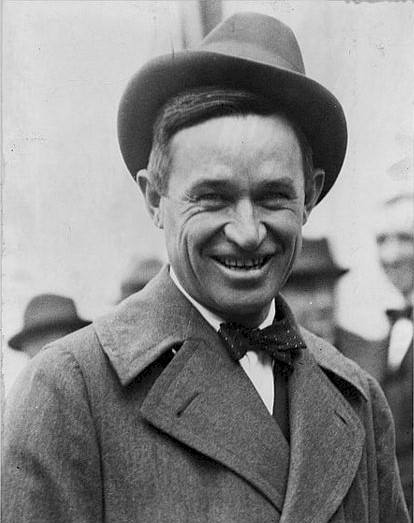Trickler
 “Trickle down”, “Trickle Up”. Ever wonder who came up with the phrases? Will Rogers. He originated the terms, “trickle down” and “trickle up” back in the 1920s, and was one of our inspirations for the Trickler. The Trickler lets you see how your pay and society would change in a more equal or less equal US.
“Trickle down”, “Trickle Up”. Ever wonder who came up with the phrases? Will Rogers. He originated the terms, “trickle down” and “trickle up” back in the 1920s, and was one of our inspirations for the Trickler. The Trickler lets you see how your pay and society would change in a more equal or less equal US.
Here’s how Will coined it back in the day.
“The money was all appropriated for the top in the hopes that it would trickle down. to the needy. President Hoover didn’t know that money trickled up. Give it to the people at the bottom and the people at the top will have it before night, anyhow. But it will at least have passed through the poor fellow’s hands.
All one had to do was look at what happened to the money loaned to the railroads and smaller banks. They had not used it to create jobs. Instead, they paid off their loans to the New York banks. So the money went uphill instead of down. You can drop a bag of gold in Death Valley, which is below sea level, and before Saturday it will be home to papa J. P. Morgan”.
If you don’t know who J. P. Morgan was, he, basically, ran American industry in the early part of the 20th century. Today, he has no equivalent. We looked around for an equivalent to Will Rogers to get the latest chapter in the trickle story, and we found this guy Stephen Colbert. Maybe you’ve heard of him?
Before watching Steve’s video, please take note of our disclaimer. We’re independent and entrepreneurial, not political. We also love super earners, earners and the unemployed equally, and believe we’re all in the same economic boat, because what goes around comes back around again. So, by rowing together, we’ll all get to the shores of win-win faster.
Will got at a universal truth when he said, “Americans were saved by their good humor during hard times: the worse the situation, the more Americans laughed.” We would only add that we observe that this is true of people everywhere. In these hard times, it follows, then, that the more you’re feeling the heat, the more likely you are to find Steve’s satire funny. But, even if you’re in the top 3%, as he is, it’ll probably make you smile just the same.
Try the Trickler out at the bottom of the page. It’s set to an inequality temperature of 38, the lowest ever recorded in the US, which we hit back in 1968. But you can change it to whatever temperature you like (100 degrees means 1 person has all the pay and you have none, 0 degrees means everyone has the same pay). Enter your salary and click. If you’re like most people, you’ll see your salary rise at 38 (the US is at 46 now).
Play with it to find the temperature that works for you. It turns out that inequality, like body temperature has a systemic impact. It not only drives your pay, but GDP growth, savings rate, high school drop out rates, homicide rates and democracy. Openyear’s Open Pay will allow you to set your personal temperature to negotiate how pay is shared between people you influence and you.
After you click, you’ll be taken to an expanded version of the Trickler that displays your new pay in a more equal or less equal US, along with 5 gauges showing how conditions would change in the US in response to the change in inequality. Data for the gauges were drawn from the following sources:
Inequality, Growth and Poverty in the Era of Liberalization and Globalization
High Income Disparities Leads to Low Savings Rates
Why is Violence More Common Where Inequality is Greater?
Inequality and US High School Drop Out Rates
On the Relationship between Political Inequality and Economic Inequality: A Cross-National Study
Raise a glass of your favorite beverage (with lime) this Labor Day to remember all the earners who aren’t earning enough, or not earning at all. Or, better yet, invite them over and feed them. And, don’t forget to have a good laugh!


